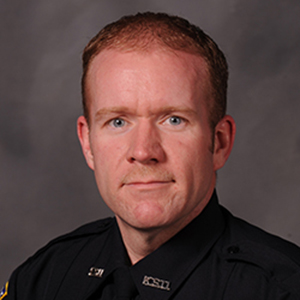Local police officer recognized for crisis intervention

November 12, 2013
Officer William Scritchfield of the Kent State Police Department was recognized for his work with the Mental Health and Recovery Board of Portage County and recently received the 2013 Crisis Intervention Team Officer of the Year award.
Assistant Police Chief Dean Tondiglia nominated Scritchfield, who has been an officer for seven years (five at Kent State), for his willingness to go beyond what was expected to assist those in need.
Scritchfield is one of more than 200 law enforcement professionals who underwent the Crisis Intervention Training, a national program providing officers knowledge and tools to help de-escalate people with mental illness or in crisis and to help make referrals.
“The program saves lives,” said Amie Cajka, director of communication at the MHRB. “(Officers) can’t solve the problems, but we find that they go the extra step to connect that individual with services. Then, they tell us that they find it becomes important to them to follow up with that person to see how she or he is doing. It makes all the difference. Just as importantly, the officer’s de-escalation skills keeps her or him safer on the job.”
Tondiglia said Scritchfield does this with every crisis case he deals with.
“(He) worked hard to unite those in crisis with the proper resources and then would follow up to make certain they were getting the care they needed,” Tondiglia said. “He did this with the utmost compassion and dignity for the person in crisis.”
Tondiglia said the department receives about 65 of these types of calls per year.
“CIT training gives officers the tools they need,” he said. “It helps the officer better understand what the person in crisis may be going through, and therefore, the officer is in a better position to respond appropriately to the situation.”
Cajka said the agencies in Portage County deal with people in crisis every day, and their two 24-hour crisis hotlines deal with about 41,000 calls per year.
Scritchfield said he was shocked when he found out he was being recognized, especially because he sees CIT as part of his job.
“It’s a call type we see often, so its something we all need to be good at,” he said. “Just being able to talk to people and show some compassion for their situation helps a lot. I try to build a rapport with the people involved.”
The MHRB doesn’t see clients but provides funding, planning and monitoring of the services they provide, such as Coleman, Townhall II, Children’s Advantage and Family and Community Services. These resources can be reached by calling 330-678-HELP.
Contact Caitlyn Callahan at [email protected].











